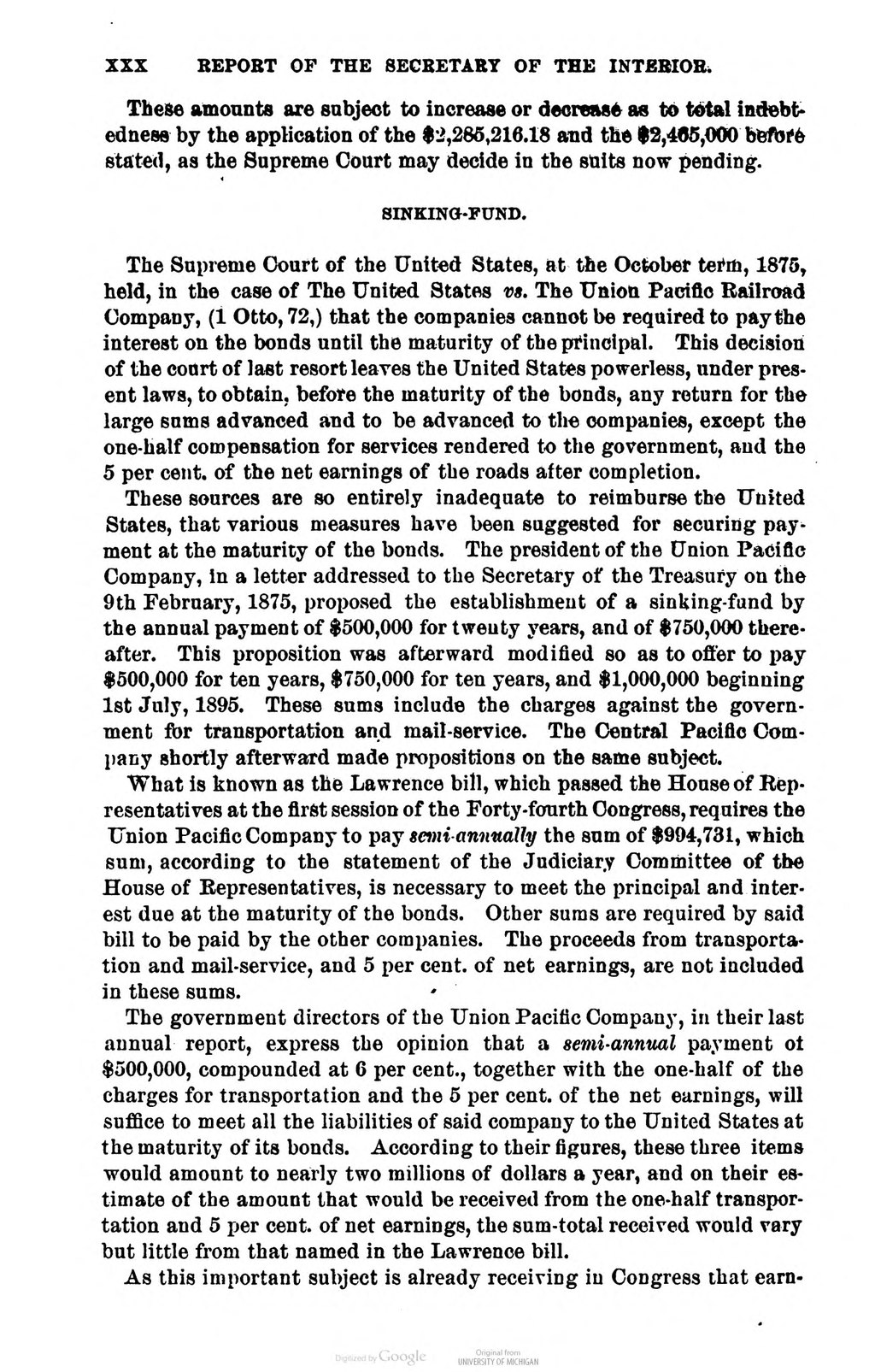These amounts are subject to increase or decrease as to total indebtedness by the application of the $2,285,216.18 and the $2,465,000 before stated, as the Supreme Court may decide in the suits now pending.
SINKING-FUND.
The Supreme Court of the United States, at the October term, 1875,
held, in the case of The United States vs. The Union Pacific Railroad
Company, (1 Otto, 72,) that the companies cannot be required to pay the
interest on the bonds until the maturity of the principal. This decision
of the court of last resort leaves the United States powerless, under present
laws, to obtain, before the maturity of the bonds, any return for the
large sums advanced and to be advanced to the companies, except the
one-half compensation for services rendered to the government, and the
5 per cent. of the net earnings of the roads after completion.
These sources are so entirely inadequate to reimburse the United States, that various measures have been suggested for securing payment at the maturity of the bonds. The president of the Union Pacific Company, in a letter addressed to the Secretary of the Treasury on the 9th February, 1875, proposed the establishment of a sinking-fund by the annual payment of $500,000 for twenty years, and of $750,000 thereafter. This proposition was afterward modified so as to offer to pay $500,000 for ten years, $750,000 for ten years, and $1,000,000 beginning 1st July, 1895. These sums include the charges against the government for transportation and mail-service. The Central Pacific Company shortly afterward made propositions on the same subject.
What is known as the Lawrence bill, which passed the House of Representatives at the first session of the Forty-fourth Congress, requires the Union Pacific Company to pay semi-annually the sum of $994,731, which sum, according to the statement of the Judiciary Committee of the House of Representatives, is necessary to meet the principal and interest due at the maturity of the bonds. Other sums are required by said bill to be paid by the other companies. The proceeds from transportation and mail-service, and 5 per cent. of net earnings, are not included in these sums.
The government directors of the Union Pacific Company, in their last annual report, express the opinion that a semi-annual payment of $500,000, compounded at 6 per cent., together with the one-half of the charges for transportation and the 5 per cent. of the net earnings, will suffice to meet all the liabilities of said company to the United States at the maturity of its bonds. According to their figures, these three items would amount to nearly two millions of dollars a year, and on their estimate of the amount that would be received from the one-half transportation and 5 per cent. of net earnings, the sum-total received would vary but little from that named in the Lawrence bill.
As this important subject is already receiving in Congress that earn-
